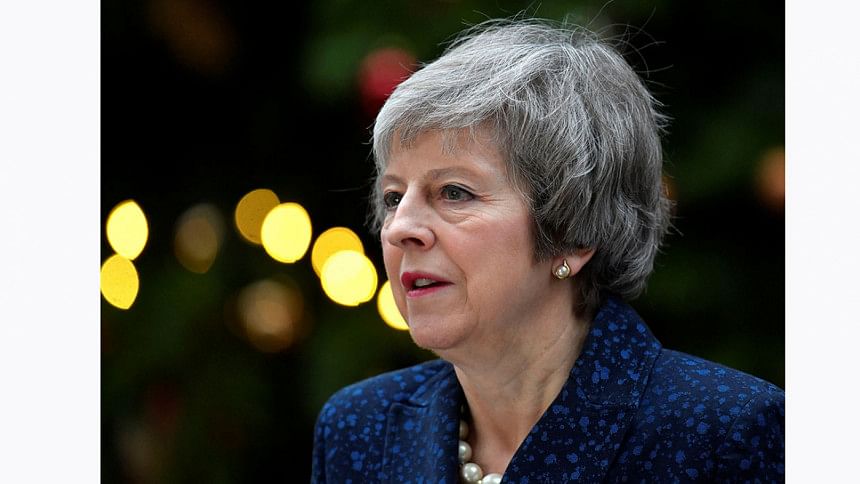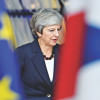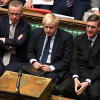UK PM faces confidence vote

Prime Minister Theresa May yesterday vowed to win a vote of no confidence triggered by angry Brexit supporters in her Conservative Party, saying her ouster would jeopardise Britain's divorce from the European Union.
Less than four months before the United Kingdom is due to leave on March 29, Brexit is in chaos with options ranging from a potentially disorderly no-deal departure to another referendum that could reverse it.
Speaking outside her Downing Street residence hours before the vote of confidence to decide her fate, May said she would fight with everything she had.
The long-running schism over Europe in her party contributed to the fall of all three previous Conservative premiers - David Cameron, John Major and Margaret Thatcher.
May, a 62-year-old vicar's daughter who voted to remain in the EU at a 2016 referendum, told opponents if they toppled her, then Brexit would be delayed or stopped.
"A change of leadership in the Conservative Party now would put our country's future at risk and create uncertainty when we can least afford it," she said.
"I stand ready to finish the job."
A new leader would not have time to renegotiate Brexit and secure parliamentary approval by the end of March, meaning the Article 50 withdrawal notice would have to be extended or rescinded, May said.
May will address lawmakers at a closed meeting before they cast votes in a metal box from 1800 GMT in Committee Room 14 at the House of Commons. The result was due around 2100 GMT.
In a possible sign May might offer a date for resignation after Brexit, her spokesman said the vote would not be about who leads the party into the next election, due in 2022.
'SHE MUST GO'
May could be toppled if a simple majority of Conservative lawmakers vote against her, though a significant rebellion could also undermine her position. However, at least 174 of her 315 lawmakers had indicated public support for her by 1420 GMT.
Brexit is Britain's most significant political and economic decision since World War Two, though pro-Europeans fear it will weaken the West as it grapples with the presidency of Donald Trump and growing assertiveness from Russia and China.
The outcome will shape Britain's $2.8 trillion economy, have far reaching consequences for the UK unity, and determine whether London keeps its place as one of the top two global financial centres.
The British pound rose to 1.2615 against the US dollar.
May won the top job in the turmoil that followed the 2016 EU referendum but promised to implement Brexit as a way to heal a divided nation. But on Monday she pulled a parliamentary vote on her deal - which seeks to keep Britain closely aligned with the EU after exit - to avoid defeat.
Her trade minister, Liam Fox, said the government might not even put it to a vote unless the EU gave more reassurances on the so-called Irish "backstop", an insurance policy aimed at preventing border controls on the island of Ireland.
German Chancellor Angela Merkel said the 27 other bloc members would not change a deal the EU spent two years negotiating.
PARTY DIVISIONS
May's predecessor Cameron bet all on the referendum he lost in 2016. Now, having already been weakened by a snap election last year which cost her a parliamentary majority, May also sees her own job at risk over Europe.

 For all latest news, follow The Daily Star's Google News channel.
For all latest news, follow The Daily Star's Google News channel. 








Comments